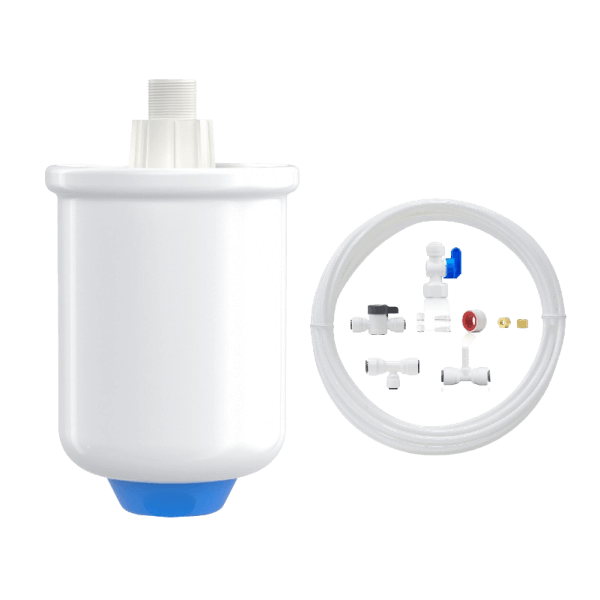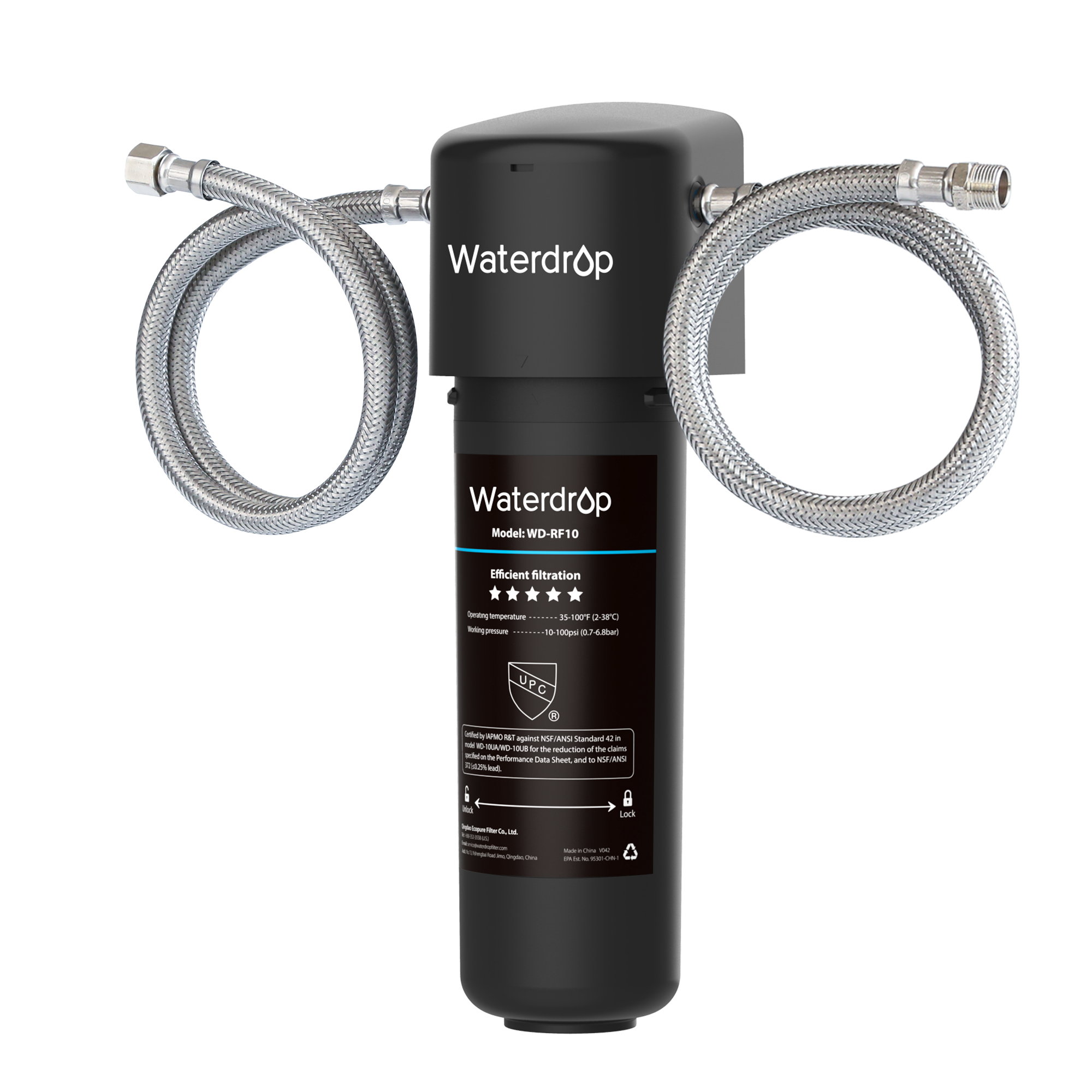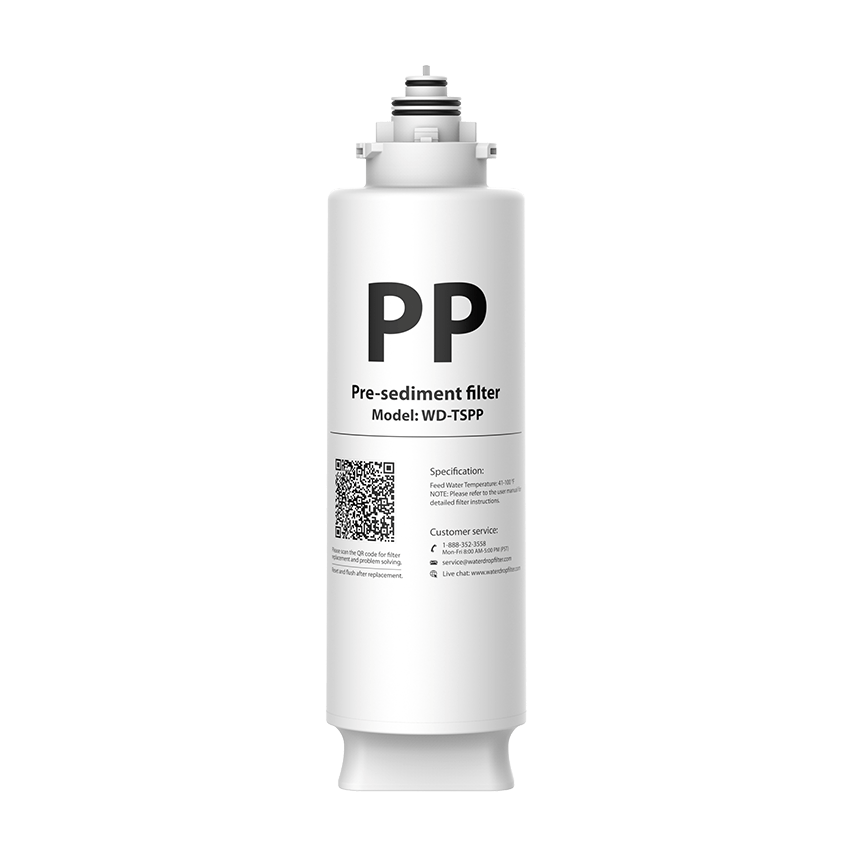How Do You Prevent Hair Loss from Hard Water?
by Dr. Jonathan Doyle - Updated September 19, 2021
Have you ever noticed large amounts of hair on the shower floor on wash day? Or does your hair come off with the comb? Well, there are several causes of hair loss, including genetics. However, the water you use for washing hair is a major contributing factor to hair loss.
Washing your hair with hard water may weaken your hair, cause breakage, and eventually hair loss. You may ask, what is hard water? Or how can you identify hard water? This article answers these questions and many more.
Read on for more information!
What Is Hard Water?
Hard water is water rich in mineral content like magnesium and calcium. It is formed from water droplets running through mineral deposits of limestone and chalk. About 85% of homes in the United States get hard water from their municipality.
The concentration of dissolved minerals in water determines its hardness. Moderately hard water has about 61 – 120 mg/L dissolved salts, while hard water has between 121 and 180 mg/L dissolved salts. Very hard water has more than 180 mg/L dissolved salts.
How To Tell Hard Water?
You can easily tell if water is hard by feeling it and noticing how it reacts in your dishwasher or washing machine. Whenever you feel a film on your hands after using water and soap, it indicates hard water. Due to the presence of calcium, hard water forms scum with soap. In addition, shampoos do not lather when you use hard water.
After using a dishwasher, you can also tell if water is hard when you notice spots on your glassware and silverware; this is usually due to calcium carbonate deposits. Your clothes can also have stains after coming out of a dishwasher if the water is hard. Hard water wears clothes out faster because it is harsh
Another way to tell hard water is when water from your faucets deliver at a lower pressure. Hard water can form mineral deposits in pipes, shrinking their diameter and reducing the flow of water.
What's Soft Water?
As opposed to hard water, soft water does not contain high levels of calcium and magnesium salts. Soft water usually forms lather when washing your hands, dishes, or clothes. Also, your clothes come out clean, with no stains and less wear and tear. In addition, soft water does not lower the pressure of water delivered to your home.

What's The Effect of Hard Water?
Because hard water contains a high concentration of calcium and magnesium salts, they produce a film over your hair and prevent moisture from penetrating. Due to this, your hair becomes dry and prone to breakage. Using hard water to wash your hair can lead to thinning, dry scalp, tangles, frizziness, and eventually hair loss.
Hard water can also worsen scalp conditions, more brittle hair, and vicious itching and scratching. Other effects of hard water on your hair include greasy deposits and color fading, especially after getting your hair colored.
How Do You Prevent Hair Loss from Hard Water?
Consistent use of hard water in washing your hair can lead to hair loss. There are several ways you can prevent hair loss from hard water by using a shower filter, purified bottled water, moisturizing masks, chelating shampoos, demineralizing shampoos, or reverse osmosis (RO) system.
A reverse osmosis system is suitable for removing water hardness. The system has an ion exchange resin that replaces magnesium and calcium ions with sodium ions to soften water. In addition, RO systems remove harmful chemicals in water, making it safe for washing your hair.
Shower filters soften water and purify it of harmful chemicals, including chlorine. Also, purified bottled water is treated and free of substances that can damage your hair. Since bottled water is safe for drinking, it is gentle on your scalp and hair.
Moisturizing masks can moisturize and revitalize your hair. It is best to use moisturizing masks after washing your hair. Natural hydrating agents like aloe vera, avocados, and honey can lock in moisture and prevent your hair from drying out.
Although costly, chelating shampoos can fight the adverse effects of hard water on your hair. The shampoo cleans your hair, removes grease, and leaves no residue behind. Demineralizing shampoos are specific in removing residue from hair. After two to three washes, your hair should have a shiny and soft look.
Other alternatives for preventing hair loss with hard water include using natural alternatives to wash your hair. Adding a tablespoon of vinegar and three cups of water gives a softer solution for washing hair. Alternatively, you can add lime or lemon to water and use it to treat your scalp after shampooing.
Wholehouse Water Filter
Wholehouse Water filters are necessary for removing water contaminants. Contaminated water does not only affect the quality of your hair; they also have adverse effects on overall health. Using a wholehouse water filter in your home helps you improve the taste of water and make water safe for bathing and washing your hair.
The Waterdrop Backwash Spin-Down Sediment Filter is a whole-house prefiltration system that can trap impurities and keep them from reaching your home water supply. The filter has a 50-microns pore size that can block impurities, including rust and small objects. The system is easy to install, and it has a backwash function that flushes out sediments trapped on the filter screen. Another prominent feature of the Waterdrop sediment filter is its heavy-duty plastic housing that is durable. Using this filter in your home ensures that you have uncontaminated, sediment-free water suitable for drinking and washing hair, dishes, and clothes.
In Conclusion
Hard water has adverse effects on your hair. It can dry out the scalp, cause hair thinning, and eventually hair loss. Apart from its impact on your hair, hard water can cause scaling in your equipment and spots on your dishes. You can use a water filter in your home to soften water and remove impurities.









